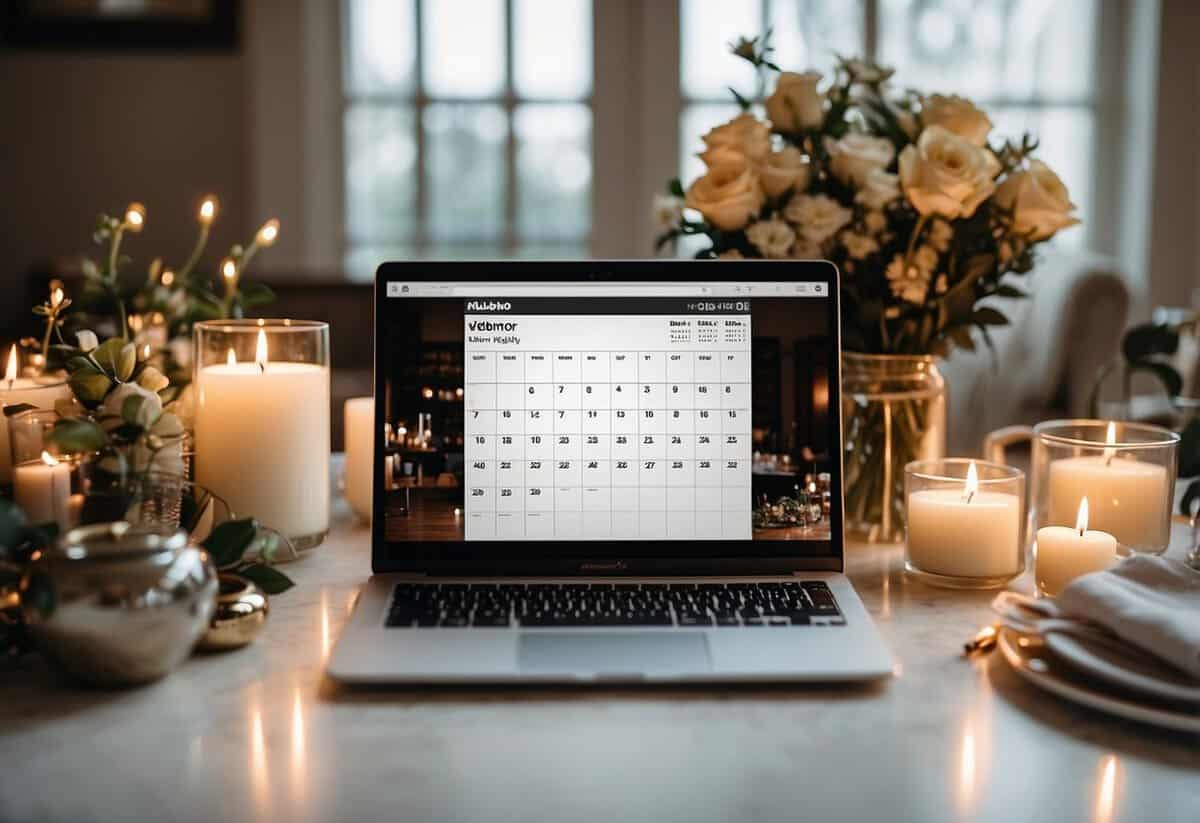How Long Should You Keep Your Wedding Website? Tips for Newlyweds
Deciding how long to keep your wedding website can be tricky, but it’s an important part of your wedding planning. Your wedding website is a great place for guests to find important information like dates, locations, and travel details. Plus, it’s a lovely way for friends and family to relive the special day.

You should consider keeping your wedding website up for at least a few months after your wedding. This gives your guests enough time to download photos, access any last-minute details they might need, and cherish the memories shared. Once your thank-you cards are sent out and everything has settled, you can decide if you’d like to keep it for nostalgia or repurpose it.
Some couples choose to keep their wedding website indefinitely, turning it into a blog or personal site. This can be a fun way to document your life together beyond the wedding day. If you’re considering this option, look into services that allow you to transfer your website easily, ensuring that your cherished memories remain accessible to those who shared in your special day.
Determining the Purpose of Your Wedding Website

A wedding website can serve many functions that help keep things organized and easy for your guests. It’s a tool to provide essential details, share personal stories, and handle RSVPs.
Convey Essential Details
Your wedding website should be the go-to place for all pertinent information about your big day. Guests will need to know the wedding date, the venue (including address and directions), and travel and accommodation options. Including a section about your wedding registry is also helpful, as it allows guests to find gift ideas that you have preselected. Ensure that your site is easy to navigate and all details are clearly presented so guests can easily plan their attendance.
Share Your Love Story and Wedding Party Bios
A wedding website is a perfect platform to share your unique love story. Many couples use this space to highlight important moments in their relationship, such as how you met and the proposal story. This personal touch adds a special feel and allows guests to feel more connected to your journey. Additionally, including bios of the wedding party can be a nice way to introduce key people involved in your wedding. Sharing a bit about each person’s relationship with you helps guests understand the roles these individuals will play on your special day.
Manage RSVPs and Guest Requirements
Handling RSVPs can be one of the most tedious tasks of wedding planning. By managing them through your wedding website, you can simplify the process. This allows guests to quickly and easily RSVP, while you maintain an up-to-date list. You can also address special requirements guests might have, such as dietary restrictions or accessibility needs. Offering an RSVP section that asks for these details will help ensure that you can accommodate everyone’s needs.
Including clear instructions on how guests can use this feature and update their responses can save a lot of stress closer to the wedding day.
Choosing the Right Duration for Accessibility

Keeping your wedding website accessible for an appropriate time ensures all your guests have the information they need, before and after the wedding. Here are some suggestions for ideal time frames.
From Engagement to Post-Wedding
Start your wedding website as soon as you have your engagement photos. This helps set the tone and gives guests early information about your plans.
Save-the-date information is crucial to include early on. Provide details about the ceremony, reception, and possibly an after-party.
During this period, update the site regularly with travel details, dress code, and other important info. Include a section where guests can state their accessibility needs. Maintain communication right up to the wedding day, ensuring everyone knows what to expect.
After the Main Event
After the wedding, continue using the website to share photos and videos from the ceremony and reception. You can also post moments from the after-party.
Keep the website up for a few months so guests can access thank-you cards and view event highlights. This is also a good time to gather feedback and ensure everyone’s needs were met.
By maintaining your site until guests have everything they need, you ensure inclusivity and convenience for all your loved ones.
Privacy and Information Control

Managing the privacy of your wedding website is crucial to protecting your personal information and guest details. Key aspects include using password protection and URL customization, as well as updating content and privacy settings after the wedding.
Password Protection and URL Customization
One of the best ways to control access to your wedding website is through password protection. By setting a password, only guests with the password can view your site. This keeps sensitive information, like venue locations and itineraries, secure.
Customizing your URL also helps with privacy. Instead of using a generic link, create a custom URL that only invited guests know. This adds an extra layer of security, making it less likely for unwanted visitors to find your wedding details online.
To set these up, go to your site’s settings and look for privacy options. Enable the password feature and choose a strong, unique password. For the URL, there’s usually an option to edit the link, where you can make it something memorable but hard to guess.
Updating Content and Privacy Settings Post-Wedding
After your wedding, you might not need the site as frequently, but it’s important to manage its content and privacy settings. Leaving your website up without updates can pose a security risk. Start by reviewing the content on your site and removing any personal information that is no longer necessary.
Check the privacy settings and keep them updated. If your site allows it, change the password protection periodically to ensure only authorized people can still access it. Some platforms also offer the option to archive or completely take down the site when you no longer need it.
These steps help maintain your privacy even after the wedding is over. Keeping the information secure ensures that both you and your guests’ details stay protected.
Integrating Registries and Gifts

Making sure your wedding website is well integrated with your gift registry will help your guests easily navigate and find the right gifts. Plus, you’ll be able to track gifts and handle returns more smoothly.
Linking to Your Registry
Adding a direct link to your wedding registry on your website makes it simple for guests to find. You can integrate your wedding registry directly into sections dedicated to gift information. This can be done using buttons or embedded links that guide guests to your registry page.
Many platforms like Zola offer options to add third-party registry links, which helps consolidate everything in one place. This way, guests don’t have to search for where to buy gifts, making their experience more straightforward.
Gift Tracking and Registry Returns
Tracking gifts as they come in is essential. Not only does it help with thank-you notes, but it also lets you see which items are still needed. Many registry platforms provide tools for tracking gifts, helping you manage this process effectively.
For returns, check the return policies of the registry services you use. Zola and other registry sites often have easy return processes, which can be a big relief if you receive duplicate items or something that isn’t quite right. Be sure to review and understand these policies beforehand to simplify any potential returns.
Final Considerations Before Closing Your Website

Before closing your wedding website, make sure to complete final updates such as thank-you notes and consider deactivating or converting your site to keep cherished memories accessible.
Final Updates and Thank-Yous
It’s a good idea to post a heartfelt thank-you message on your wedding website. This public gesture shows appreciation to everyone who celebrated with you.
Update your photo gallery with high-quality wedding photos. Adding your best shots helps guests relive the wonderful day. You might also want to share a few candid moments or funny bloopers.
Include any last-minute updates. Maybe your wedding registry information has changed, or there’s a new mailing address for thank-you cards. Keeping the info fresh ensures nothing gets overlooked.
Example Checklist:
- Post thank-you notes
- Upload wedding photos
- Share new addresses or registry info
Deactivating or Converting Your Site
Decide if you want to deactivate your website or convert it for other uses. Some couples choose to deactivate their site after a certain period, once they feel all necessary info has been shared.
Converting your site into a more general family blog is another option. This way, you maintain the memories and can continue sharing significant life events like anniversaries or the arrival of a new family member.
Steps to Consider:
- Determine when to deactivate
- Save important content before shutting it down
- Explore options for converting the site
If you’re interested in wedding website duration, some websites offer guidance on how long to keep it active. Whatever you choose, make sure your decision suits your personal and family needs.



